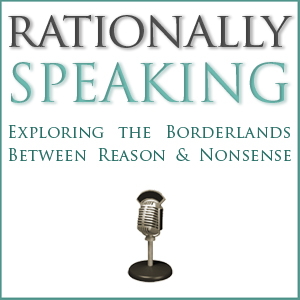Rationally Speaking #193 - Eric Jonas on "Could a neuroscientist understand a microprocessor?"
Rationally Speaking Podcast
New York City Skeptics
4.6 • 787 Ratings
🗓️ 18 September 2017
⏱️ 65 minutes
🧾️ Download transcript
Summary
Transcript
Click on a timestamp to play from that location
| 0:00.0 | Today's episode of Rationally Speaking is sponsored by Givewell, a nonprofit dedicated to finding outstanding charities and publishing their full analysis to help donors decide where to give. |
| 0:09.1 | They do rigorous research to quantify how much good a given charity does, how many lives does it save, or how much does it reduce poverty per dollar donated? |
| 0:17.3 | You can read all about their research or just check out their short list of top recommended evidence-based charities to maximize the amount of good that your donations can do. |
| 0:25.2 | It's free and available to everyone online. Check them out at give well.org. Welcome to Rationally Speaking, the podcast where we explore the borderlands between reason and nonsense. |
| 0:48.7 | I'm your host, Julia Galeith, and I'm here with today's guest, Eric Jonas. |
| 0:53.4 | Eric did his PhD at MIT in Brain and Cognitive Sciences, |
| 0:57.7 | and he's now a postdoc at UC Berkeley's Center for Computational Imaging. |
| 1:03.1 | Eric made a splash last year in the worlds of neuroscience and computer science |
| 1:07.9 | by co-authoring a paper provocatively titled, Could a Neuroscientist |
| 1:13.3 | understand a microprocessor? So we're going to be talking about this paper today and what it |
| 1:18.4 | implies about whether the tools used by neuroscientists are in fact as informative as we think |
| 1:26.3 | they are. Eric, welcome to the show. |
| 1:28.6 | Thank you, Julia. |
| 1:29.8 | I was saying on a recent episode of the podcast that I collect this, |
| 1:34.8 | I've been like compiling this list of papers or studies that have a particularly |
| 1:40.3 | clever experimental design or approach. |
| 1:42.7 | And your paper with Conrad's courting |
| 1:46.4 | definitely belongs on this list. It was very clever. So you guys basically took a number of |
| 1:53.7 | the common tools that neuroscientists use to study the human brain and applied those tools |
| 2:00.1 | to a computer chip, essentially, |
| 2:02.7 | um, like studying the chip as if it were a brain using the tools that neuroscientists use. |
| 2:08.4 | Why did you do that? Can you like walk us through the rationale behind that study? |
... |
Please login to see the full transcript.
Disclaimer: The podcast and artwork embedded on this page are from New York City Skeptics, and are the property of its owner and not affiliated with or endorsed by Tapesearch.
Generated transcripts are the property of New York City Skeptics and are distributed freely under the Fair Use doctrine. Transcripts generated by Tapesearch are not guaranteed to be accurate.
Copyright © Tapesearch 2025.

